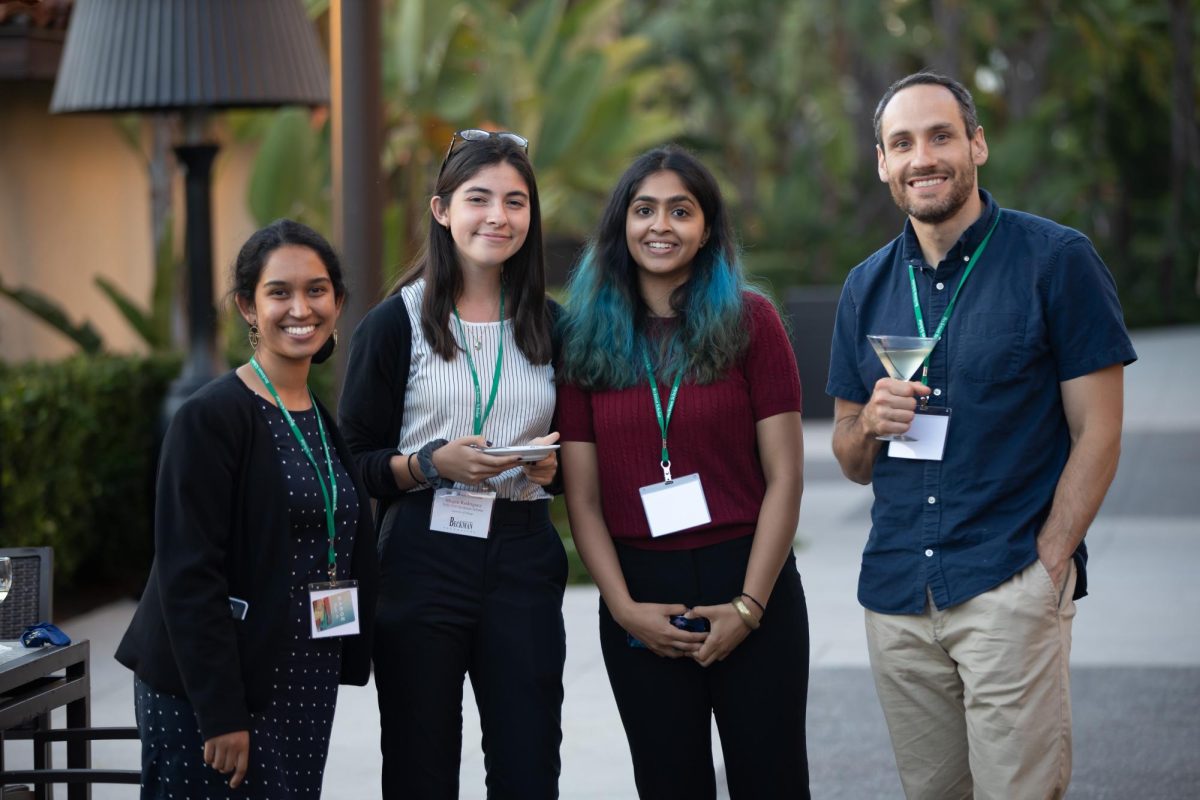The Arnold and Mabel Beckman Foundation announced on January 23 that the University is among fourteen institutions selected to share $2.1 million in funding over three years as part of the Beckman Scholars Program. The funding awards six 15-month mentored research experiences to accomplished undergraduate students in chemistry and biology.
Founded in 1977, the Beckman Foundation is the legacy of the partnership and philanthropic efforts of Arnold and Mabel Beckman. Arnold Beckman is widely recognized in the scientific community for his inventions of the pH meter, a portable device that can measure a substance’s acidity, and the DU spectrophotometer, which uses light to measure a substance’s concentration. His wife, Mabel Beckman, was, in their grandson’s words, his “sounding board and main business confidant.”
Arnold’s inventions early in his career, coupled with the help of Mabel, drove the establishment of Beckman Instruments. The company’s financial success from inventions like oxygen analyzers, which prevent infant blindness in hospitals, inspired a willingness to promote future scientific efforts.
Today, the Beckman Scholars Program provides grants to undergraduate students studying chemistry and life sciences at select universities. For a student from the University to receive funding from the Beckman Scholars program, the University needed to qualify as an institution. Associate Professor and Associate Chair in the Chemistry Department John Anderson, a 2006 UChicago Beckman Scholar, leads the committee responsible for both renewing the three-year funding period and selecting two undergraduate students per year in their second or third year of study.
According to Anderson, 15 to 20 percent of the initial shortlist of schools that were invited to apply last May were chosen for the program. Given that the University was not awarded funding in 2021–23, Anderson was selective when finding fifteen mentors who were most competitive for the application. These mentors were not only at the top of their fields but “committed to working with undergraduates and ensuring undergraduates get fantastic training in the sciences.”
The clearest distinction between the Beckman Scholar Program from various other research funding opportunities for undergraduates on campus, such as the Quad Grant and Biological Sciences Collegiate Division (BSCD) Grant, which are both offered by the College Center for Research and Fellowships, is the increase in funding and length of the experience. From the total of $21,000 provided to each student recipient over 15 months, $6,800 goes towards summer research, $4,600 is awarded for the school year, and $2,800 is reserved for travel and lab supply expenses.
Those in the program will meet weekly to discuss updates on their research projects. Additionally, scholars are invited to present their work at a two-day Beckman Symposium regional event hosted in Orange County, California and Boston, Massachusetts. Here, they can speak with scholars at other universities as well as members of the Beckman Young Investigator Program, which supports early-career scientists in tenure-track positions, and the Arnold O. Beckman Postdoctoral Fellowship, which funds postdoctoral scholars in the field of chemistry.
“One of the things that I think is really unique is that you may be talking with someone who’s doing plant biology and someone who’s doing quantum physics,” Anderson said. “Those two people have to talk to each other and explain why their research is important at a level that’s accessible to a scientific and educated audience from completely separate fields. It makes you focus on your message and pitch in a broad and accessible way.”
Interested students must submit both a written application and sit for an interview to receive funding. Venna Mannava A.B. ’21, a former research assistant under Anderson and a recipient of the program’s grant in 2019, recalls writing a research proposal and describing her interest in pursuing research long-term during the application process. Her synthetic organic chemistry research was focused on “creating plastics from carbon dioxide,” as she put it.
“What was really great about the program was once I was funded, I didn’t have to worry about new proposals or applications,” Mannava said.
With the unique perspective of both the interviewer and interviewee, Anderson said the way to stand out from other applicants is to highlight the importance and practical applications of the project. “Why is your project important and what problem is it going to solve? How can you get a group of people who are all smart and hardworking to see the promise of that project?” said Anderson.
He recommends applicants focus on a concise, understandable pitch that lays the foundation and significance of the project. The 2024 application is closed, with this year’s Beckman Scholars expected to be announced the week of March 11.
Anderson and Mannava both appreciate the program’s ability to bridge different academic fields and better prepare students for the research process. “One of the best parts about the program is getting to interact with people farther along the process and feeling there’s a path forward,” Mannava said.










